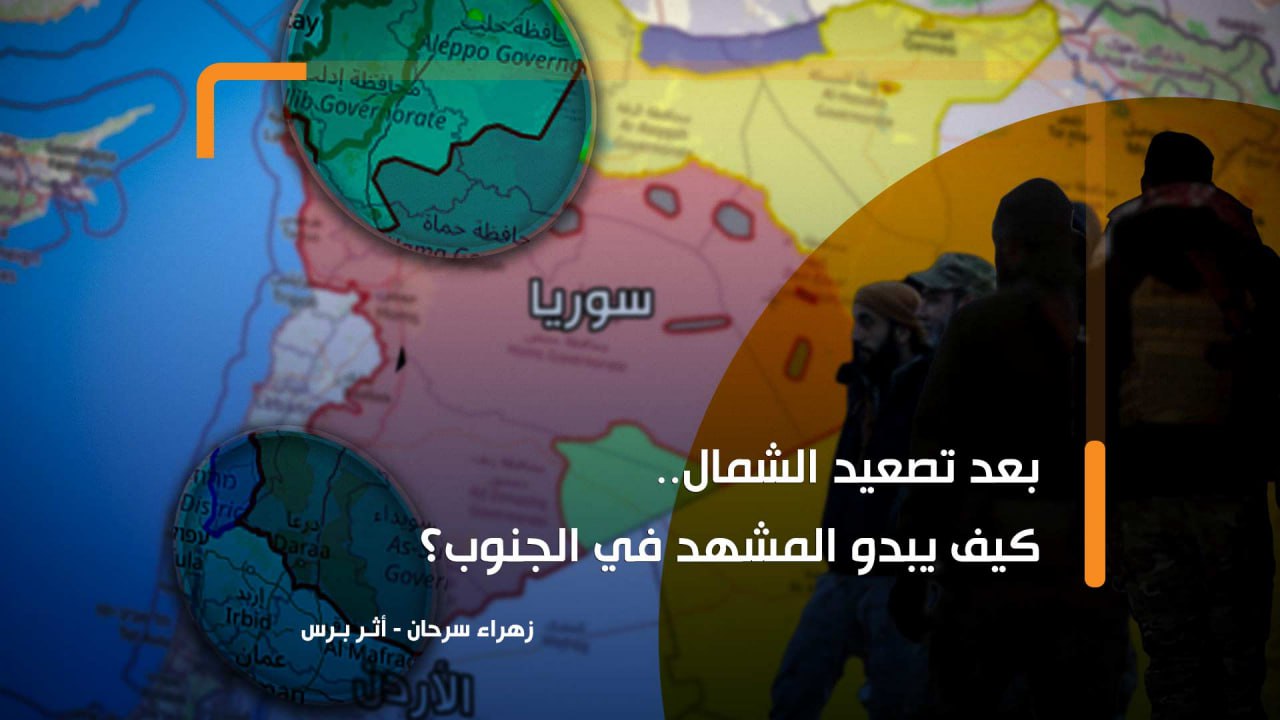The frontlines of northern Syria recently witnessed significant and dramatic developments, which began shortly after Prime Minister Benjamin Netanyahu’s direct threats to Syria. This raised questions about the potential for these tensions to spread to the southern Syrian front.
Analysts from both Arab and Hebrew perspectives have agreed that the escalation in northern Syria is linked to Netanyahu’s statements. Many pointed to the Israeli ceasefire decision, which sparked considerable controversy within Israel. Some Hebrew analyses described it as a “necessary evil” due to the internal pressures Netanyahu and his government faced.
Political Context and Israeli Objectives
Political analyst Dr. Ahmed al-Darzi, in an interview with Athr Press, emphasized that the Israeli and American stance, along with that of European Union countries, aims to sever the connections between Syria, Lebanon, and the West Bank. The broader objective is to disrupt the corridor linking Iran, Iraq, and Syria to Lebanon.
The Flames of the Revolution Besiege the Assad Regime : Political & Military Confusion
This viewpoint was echoed by Colonel Daniel Rakoff, a senior researcher at the Jerusalem Institute for Strategy and Security, who noted in an analysis published by the Hebrew newspaper Maariv: “What is happening is beneficial and it’s expected that Israel’s freedom of movement in Syria will expand.”
The Southern Front: Potential for Escalation
The escalation in northern Syria was welcomed by armed groups operating in the southern region of Syria, adjacent to the Israeli-occupied Golan Heights. Dr. Darzi indicated to Athr Press that there are indications that we may soon see increased activity in southern Syria. This comes after continued attacks by local armed groups in Daraa and Suweida, even following the 2019 ceasefire agreement.
Sources reported to Athr Press that local armed groups recently attacked the Khirbet Ghazala checkpoint on the Daraa-Damascus international road. However, calm returned to the region on Monday, as security remained under the control of central committees from the Syrian army.
Dr. Darzi explained that Israel views the situation as an “existential danger.” He argued that Israel might seek to escalate tensions in southern Syria to protect its “interests” in the region, particularly given what Israel perceives as Hezbollah’s victory in southern Lebanon. Israel is likely to continue supporting armed groups in Syria to maintain pressure and influence.
Russia’s Role in the South
Russia has long been a key player in southern Syria, particularly as Israel has ramped up airstrikes and intensified its border activities, including fortifying the Golan Heights and pushing Israeli tanks into the area. In response, Moscow has increased its observation points along the southern border.
Alexander Lavrentyev, Russia’s Special Envoy to Syria, warned that any Israeli advance into Syrian territory would be disastrous. He stated, “If the Israeli occupation forces advance towards Syrian territory, we will face a very bad scenario, and the reaction will be very negative.” Lavrentyev confirmed that Russia maintains military police units along the Golan Heights’ Bravo Line, with regular patrols monitoring the situation. For now, Russia has not observed any significant military movements in the region.
Dr. Darzi noted that Moscow’s position in the south is complicated by its existing agreements with Israel. He suggested that Russia would likely seek to prevent further escalation to maintain stability and avoid conflict with Israel.
Jordan’s Position on the Southern Front
The situation in southern Syria is also heavily influenced by Jordan, which shares a border with Syria to the south. Jordan, which supported armed groups in southern Syria after the onset of the Syrian conflict in 2011, has recently signalled a shift in its approach. Jordanian Foreign Minister Ayman Safadi emphasized his country’s support for Syria’s sovereignty during a phone call with his Syrian counterpart, Bassam Sabbagh. This was further reinforced by discussions between Iraqi Prime Minister Mohammed Shia al-Sudani and Jordan’s King Abdullah II about the evolving situation in Syria.
Reports from Syrian opposition sources in Turkey, quoted by Al-Akhbar, suggested that Jordanian officials have warned opposition factions in Daraa and southern Syria against engaging in military activities against the Syrian army. This indicates that Jordan may no longer be willing to tolerate such actions.
It is believed that the interests of regional powers supporting Syria converge to control the escalation in the south and prevent its expansion. This alignment was evident in the diplomatic efforts of several countries, including some Gulf states, which have emphasized their support for Syria’s sovereignty. As a result, Syria is unlikely to be isolated from its Arab neighbours in the same way it was in 2011.
In conclusion, the recent developments in northern and southern Syria reflect a complex web of regional and international interests, where Israeli threats, Russian involvement, and Jordanian diplomacy all play significant roles. The future of Syria’s southern front remains uncertain, but current trends suggest that both Israel and Syria, along with their respective allies, are preparing for potential escalations in this critical region.
This article was translated and edited by The Syrian Observer. The Syrian Observer has not verified the content of this story. Responsibility for the information and views set out in this article lies entirely with the author.


